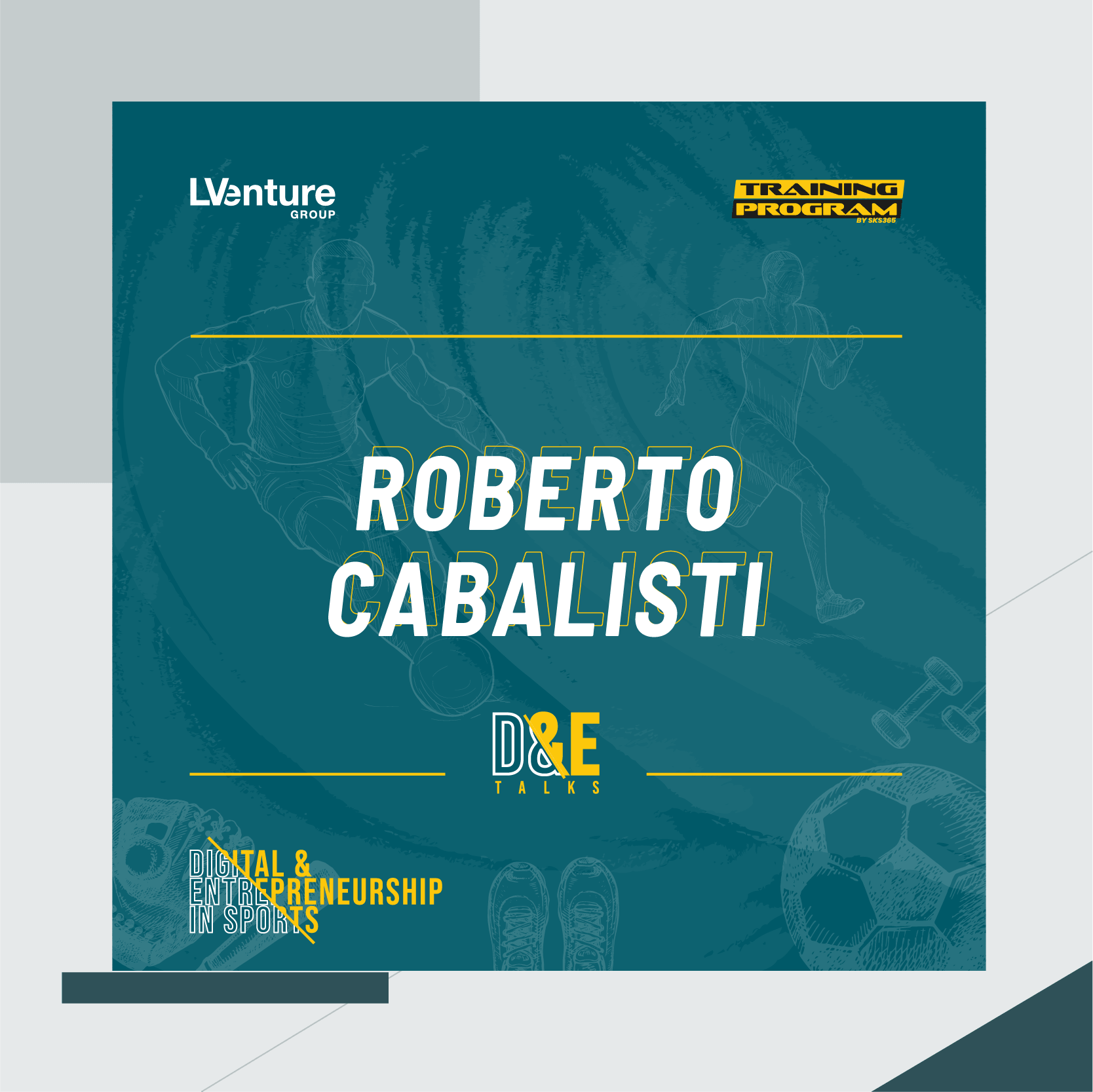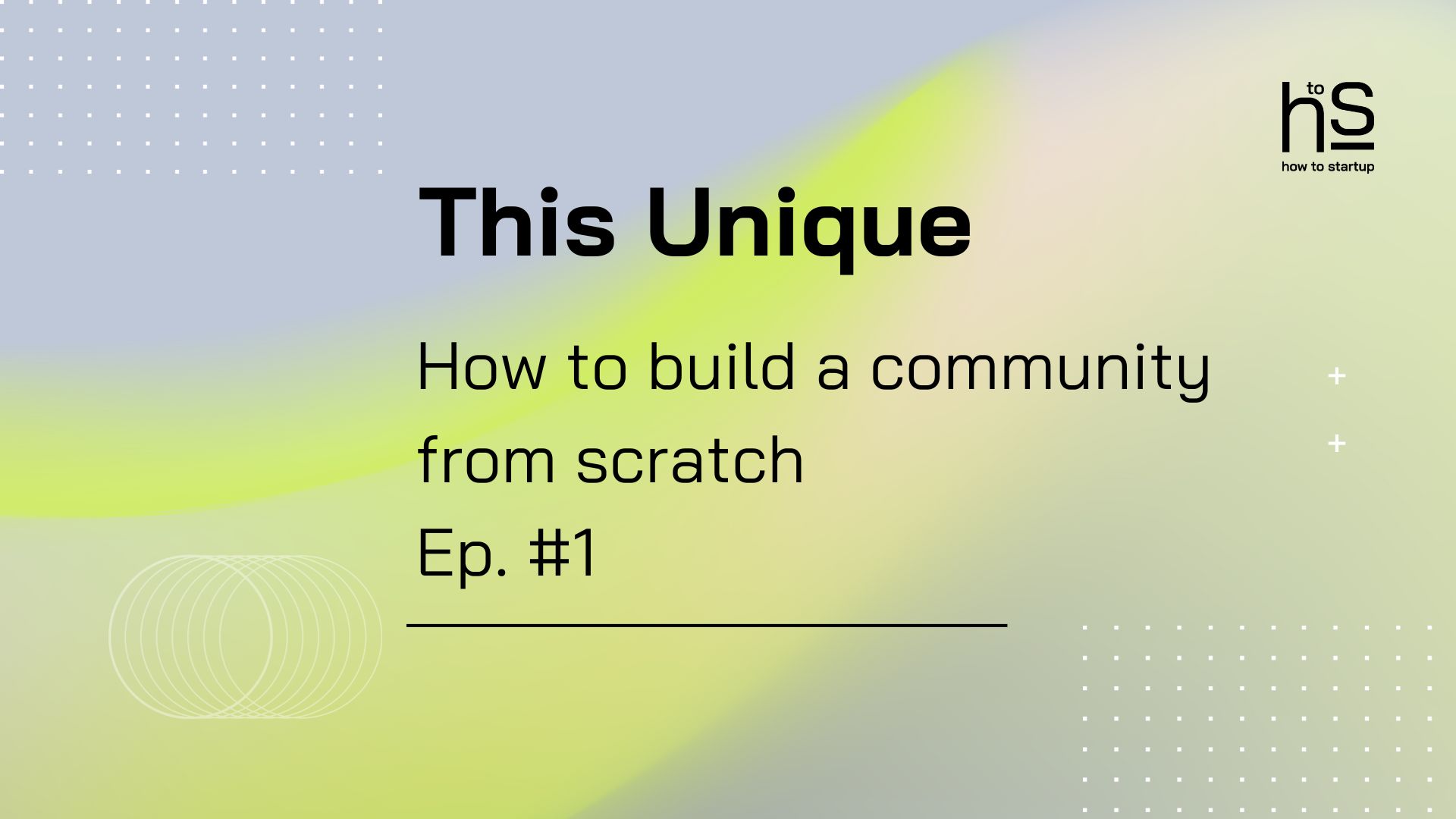“There has never been a more suitable game than baseball for measuring a man’s true worth. It is like a family, a group of brothers working together to reach the same goal,” wrote the legendary Babe Ruth. To live the team as a family, putting the individual performance at the service of the group, supporting the companion in difficulties, is part of the philosophy of baseball, of what is its strong ethical component, to say it with the words of Roberto Cabalisti. Pitcher, among the strongest to have trodden the European diamonds, his palmares recites 5 League Titles, 2 Italian Cups, 1 Champions Cup, 2 European Championships and the participation to the Olympic Games of Atlanta 1996 and Sydney 2000.
The values of baseball, the attitude to respect the rules, the evaluation and reaction to unforeseen factors, accompany Roberto in his professional activity and daily life and will also follow his future projects, which are being defined also thanks to Digital & Entrepreneurship in Sports.
What baseball values have you carried with you into your subsequent work experience?
Baseball is a particular sport, which goes a bit out of the canons of other sports because the ball is an object of play that does not enter into the point factor. In baseball it is the man who has to prepare himself to score the point and it is a bit like in the world of work, where the man has to prepare himself to achieve the result. Moreover, since there is no stopwatch that marks the end of the game, the time of play, of work, can be very high and conditioned by factors such as the error of the individual, or the coverage of that error by the team. There are aspects that I have also brought to my work: since baseball is not a professional sport in Italy, I have always had to carry on my job as a driving school instructor in parallel. In baseball there are a lot of rules and on the road it’s very similar, if you don’t follow the rules or don’t fully evaluate possible unforeseen events, you risk jeopardizing the proper conduct of the vehicle. My experience in sports, this attitude to follow a very regulated context and to prevent the imponderable, has led me to give that extra something to the guys I follow on the job, which they often recognize themselves.
“In baseball, it’s the man who
has to set himself up to score the point
and it’s a little bit like the business world..,
where the man must prepare himself
to achieve the result”
Can you tell us about any aspects of the “baseball philosophy” that you think have great value in everyday life?
Baseball forms an important ethic, that of being a group despite your individual performance, because if the individual does not work in collaboration with the other 9 teammates, it is impossible to get to the final result, you never win alone. There is a strong ethical component: the behavioral one, that of following the rules, which is also part of my work. In the United States or Japan, where it is widely practiced, it has a strong impact on popular culture. In addition, as I have already mentioned, the whole group must work according to precise rules, from batting practice to running the bases. Even the most histrionic and eccentric athletes in the history of the game, I can quote Babe Ruth, in the playing field had a dazzling behavior, which dragged the team. The team is like a family, the synergy that is created in the locker room, the mutual respect, the incitement, are components that drag the individual performance and that you also bring in daily life and in the world of work.
“The team is like a family,
the synergy that is created in the locker room,
the mutual respect, the incitement,
are components that you bring
also in your daily life
and in the world of work”
What are the lessons you take with you from your sports experience?
Knowing how to control your emotions in the most difficult moments. I had the opportunity to play the Olympics, with 40,000 people watching your actions, with the spotlight on you. On the one hand you feel like the star of the moment, on the other your legs are shaking. Even on these occasions the strength of the team, of the support of the group, comes out. I also learned the value of simplicity, of being ready in the immediacy of situations of great pressure, of making a decision while keeping a cool head, without thinking about “but” or “if”.
You participated in the Olympics, the most important event in the career of a professional sportsman.
Can you tell us something about it?
Do you think this year’s Olympics will be different in any way?
In the meantime, let’s hope that this Olympiad can be held with all the trappings. It is the most important event in sports, it has taken place even in the most difficult times in human history. For every athlete, there is a four-year preparation process: every year, until the Olympics, you think about that moment. I lost two of them due to injuries in the twenty days prior to the start and you really live a sporting drama. Achieving an Olympic result means entering the world of sports. It is one of the greatest aspirations for an athlete and the support of the public is something that repays you for everything. Surely this edition, without the warmth of the people, will be very different, and this factor could also affect the results. The athletes will have to really find within themselves that inner strength to hit the target.
“Achieving an Olympic result
means entering the world universe of sports.
It is one of the greatest aspirations for an athlete
And the support of the public is something that repays you for everything”
Baseball is one of the sports where technology has had a big impact in recent years, especially obviously in MLB.
From scouting, to radar, to 3D technologies to precision cameras.
How has the game changed?
Baseball has always been equipped with state-of-the-art technology at the highest levels of professionalism, before many other sports. The specific characteristic of baseball is that it is a reflection of statistics. Each player is evaluated on the single pitch, the single run, the single hit on the field. It is perhaps the only sport for which, by taking in hand the scorer scored by an expert at the end of the game, you are able to reconstruct the game exactly in detail. Think of the movie Moneyball, which is based on a true story. Statistics have actually been applied to the field, producing cost containment with a strong bias towards results. Technology has also been applied to support the referee’s decisions from the very beginning. At the Sydney Olympics for the first time I came into contact with cameras placed on the bases and the impact of change was very strong. Even today, however, one of the most important calls in the game, the ball or strike, is in the hands of the umpire.
You were one of the best Italian and European players, with a long and successful career.
What happens for a professional sportsman when a career like yours is interrupted?
It was a choice, the one to quit, that surely touched me. Because of my love for this sport and my great desire to stay in the environment, even without playing and transferring my experience to young people, I put myself aside a bit. As long as you’re on the field you can even reconcile eight hours of work with four hours of training, when you lack that stimulus, it becomes much more difficult. The last four years of my career were really of pure passion at the expense of an economic choice. When I stopped, I realized that I had perhaps neglected the work environment while at the same time missing baseball. It was a challenge to take off the player’s clothes and put on those to get behind a desk. This feeling goes away after a couple of years and for many players and sportsmen it is a very delicate moment, sometimes they lack the strength to do something new.
“It’s been challenging to take off the shoes of a player
to get behind a desk.
That feeling goes away after a couple of years
and for many players and athletes
it’s a really sensitive time,
sometimes they lack the strength to do something new”
Why did you choose to participate in Digital & Entrepreneurship in Sports?
Since I quit, I have dedicated myself, among other things, to conveying my sporting experience on social media, giving it a technical and motivational slant, but without developing a strategy that could also have commercial aspects. When I saw the program I was intrigued by the possibility of exploring this new world in a more professional way. Finding myself with other ex-sportsmen, who come from many different backgrounds but feel the need to acquire new tools, I found moments of group work in the program truly stimulating.
What project do you have in the works or would like to launch,
or how do you plan to leverage the skills you are gaining?
I don’t have a precise idea yet, but certainly on the one hand I’m very interested in the development of new social communication channels, for personal branding. On the other hand, many ideas that I wanted to pursue have remained in the drawer, because I didn’t have a team with which to develop them. Now I certainly feel in the right context to develop them. For example, I imagined a project on road safety to identify the synergies and similarities between the trajectories that are faced in a baseball game with automotive traffic, going back to what is my current profession. I also think that acquiring new digital skills can give me the opportunity to develop other activities or alternative businesses.
“A lot of ideas that I wanted to pursue
remained in the drawer,
because I didn’t have a team
with which to elaborate them.
Now I certainly feel
in the right context to develop them.”

















